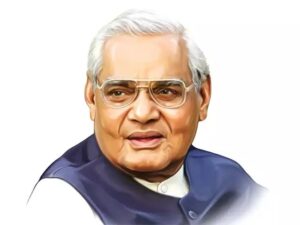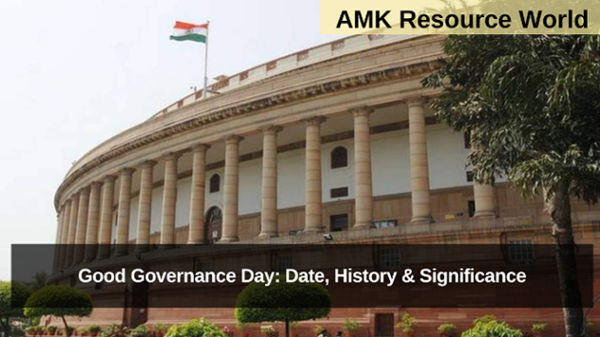Good Governance Day, celebrated every year in India on 25th December, It is an important occasion dedicated to promoting transparency, accountability, and efficient governance practices. It commemorates the birth anniversary of Atal Bihari Vajpayee, one of India’s most beloved leaders and former Prime Minister. This day underscores the significance of good governance in building a strong, prosperous, and equitable society.
Good Governance Day falls on 25th December, aligning with the birth anniversary of Atal Bihari Vajpayee. It is a day for citizens and government officials alike to reaffirm their commitment to governance that is transparent, responsive, and inclusive. Educational institutions, government offices, and organizations across the country conduct seminars, discussions, and activities emphasizing good governance principles.
HISTORY
Good Governance Day was first observed in 2014 when the Government of India officially declared 25th December as a day to honor Atal Bihari Vajpayee’s legacy and his vision for governance. Vajpayee, who served as Prime Minister from 1998 to 2004, was known for his leadership style, emphasizing democratic values, economic reforms, and policies that catered to the welfare of the common man.
Atal Bihari Vajpayee’s contributions to Indian governance were monumental, particularly in areas such as infrastructure development, nuclear policy, and diplomatic relations. The Golden Quadrilateral project, which revolutionized road connectivity in India, and the Kargil victory are testaments to his impactful leadership. By dedicating his birth anniversary to good governance, the nation seeks to inspire future generations to prioritize ethical, effective governance.
KNOW ABOUT ATAL BIHARI VAJPAYEE
 |
|
| Born | 25th December 1924 |
| Died | 16th August 2018 |
Atal Bihari Vajpayee (December 25, 1924 – August 16, 2018) was one of India’s most esteemed leaders, known for his exemplary statesmanship, eloquence, and dedication to the nation’s development. He served as the Prime Minister of India three times: briefly in 1996, from 1998 to 1999, and then from 1999 to 2004
Born in Gwalior, Madhya Pradesh, Vajpayee was a gifted poet, journalist, and orator. He co-founded the Bharatiya Jana Sangh in 1951, which later evolved into the Bharatiya Janata Party (BJP) in 1980
| Read also: National Consumers Rights Day: Date, History & Significance |
Vajpayee was awarded the Bharat Ratna, India’s highest civilian honor, in 2015 for his contributions to the nation. He was also a recipient of the Padma Vibhushan and the Best Parliamentarian Award
SIGNIFICANCE
Good Governance Day serves as a reminder of the critical role governance plays in shaping a nation’s future. It emphasizes several key aspects:
Good governance entails transparent decision-making processes where citizens are informed about policies and their implementation. Accountability ensures that leaders and institutions are held responsible for their actions, fostering trust among citizens.
Upholding the rule of law is a cornerstone of good governance. It ensures fairness, equality, and justice in society, creating an environment where every individual feels secure and valued.
Effective governance involves active participation from all sections of society. Inclusivity ensures that marginalized and underprivileged groups have a voice in decision-making processes, paving the way for equitable growth.
Good governance aims to provide timely, efficient, and accessible services to citizens. It seeks to eliminate bureaucratic hurdles and make public services citizen-friendly.
Governance should prioritize long-term goals, balancing economic, social, and environmental objectives. Sustainable development ensures that future generations inherit a better world.
CONCLUSION
Good Governance Day celebrated on 25th December is more than a commemoration; it is a call to action. It reminds leaders and citizens alike of their collective responsibility to uphold democratic values and work towards a society that is just, transparent, and inclusive. By honoring Atal Bihari Vajpayee’s legacy, the nation reaffirms its commitment to governance that truly serves the people.
As citizens, we can contribute to this vision by being informed, participative, and vigilant, ensuring that the principles of good governance become an integral part of our daily lives.










































